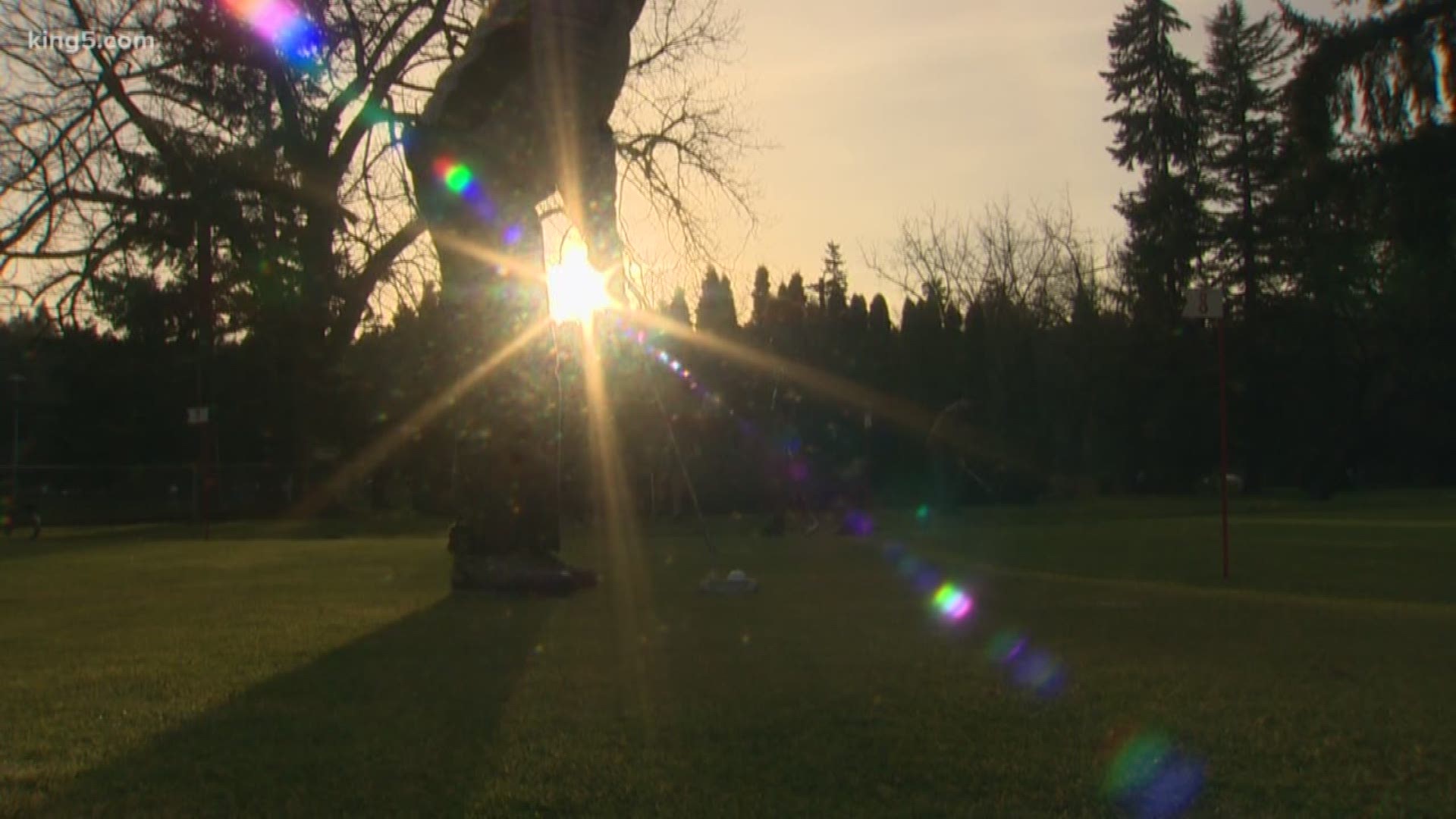SEATTLE — Editor’s note: The video above was originally published in March 2019.
Here we go again. Days are getting longer and temperatures are slowly starting to warm, which means it’s almost time for most of the United States to “spring forward” for daylight saving time.
Despite state lawmakers approving permanent daylight saving time in 2019, Washingtonians will still need to set their clocks ahead an hour on Sunday, March 13.
The time change will happen at 2 a.m. local time across most of the country, so remember to set clocks an hour ahead before going to bed Saturday night.
The time change will result in sunlight extending longer into the evening, but the sun will take longer to emerge in the morning. This will be the case until Nov. 6.
Washington can't do away with standard time unless Congress approves. Federal law allows states to opt-out of daylight saving time, but it doesn’t allow states to do the opposite.
However, no time change is observed in Hawaii, most of Arizona, Puerto Rico, the U.S. Virgin Islands, American Samoa, Guam and the Northern Marianas.
Like Washington, many other states have passed measures to stay on daylight saving time permanently -- a move that some have called "lock the clock." In some cases, they've floated ideas to get around it.
In almost all the cases that have been approved by states, it requires a literal act of Congress. Under federal law, states are allowed to opt-out of daylight saving time and remain on standard time but are not allowed to remain on daylight time. This year, a bipartisan group of lawmakers in Congress once again proposed staying on daylight saving time year-round with the Sunshine Protection Act.
Sen. Patty Murray (D-WA) was a co-sponsor of the bill to make daylight saving time the new, permanent standard time. The act was first introduced in congress in 2018 by Senator Marco Rubio (R-Fla.) and was re-introduced in 2019.
“I am determined to make sure this is the last weekend people in Washington state have to change their clocks—it’s time we finally make daylight saving time permanent,” Murray said in a statement Friday. “I don’t know a single person who wants the sun to set at [4 p.m.] during the winter—which it currently does for us here on the West Coast.”
Murray said changing the clocks twice a year was an “absolutely antiquated and ridiculous tradition,” and she’s not alone in that thinking.
In the last four years, 18 states have passed legislation or resolutions supporting year-round daylight saving time, according to the National Conference of State Legislatures.
The states include Alabama, Georgia, Minnesota, Mississippi and Montana (2021). Idaho, Louisiana, Ohio (resolution), South Carolina, Utah and Wyoming (2020). Delaware, Maine, Oregon, Tennessee and Washington (2019). Florida (2018; California voters also authorized such a change that year, but legislative action is pending). Some states commissioned studies on the topic, including Massachusetts (2017) and Maine (2021).
Daylight saving time is also a good reminder to check the batteries in your smoke alarms and carbon monoxide detectors. You should also check the clocks in your car, microwave, oven and other non-smart devices.

